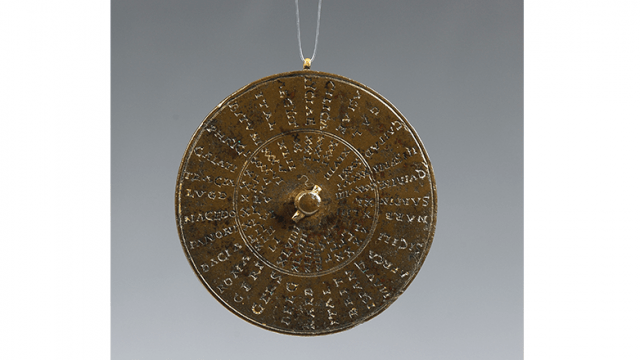
History of Science Museum, Oxford: Vertical disc dial. Found near Bratislava, c.250 CE, Inv. 51358
The More Things Change: Exemplary Time in Valerius Maximus
The way time functions in the short, didactic stories called exempla by the Romans is strange: simultaneously fixed and elastic, ancient and contemporary. In Valerius Maximus’ collection, the Facta et Dicta Memorabilia, the stories depend partly on their age: this is particularly acute in Book Two, which respectfully details the antiquity of Roman values and structures in an ideal past. Nevertheless, in order to have power and efficacy, exempla also needed to speak to the present day, and so a balance constantly had to be struck between the authority of age and the currency of the values and tensions explored in the work. In this paper, I use the chapter De Indole (On Innate Character, 3.1), as a springboard for examining the operation of time in Valerius’ text. Drawing on broader philosophical perspectives, as well as close analysis of Valerius’ language, I set out a model for understanding ‘exemplary time’.
Location
Speakers
- Dr Sarah Lawrence, University of New England
Contact
- Tatiana Bur
File attachments
| Attachment | Size |
|---|---|
| Sarah_Lawrence.pdf(169.25 KB) | 169.25 KB |